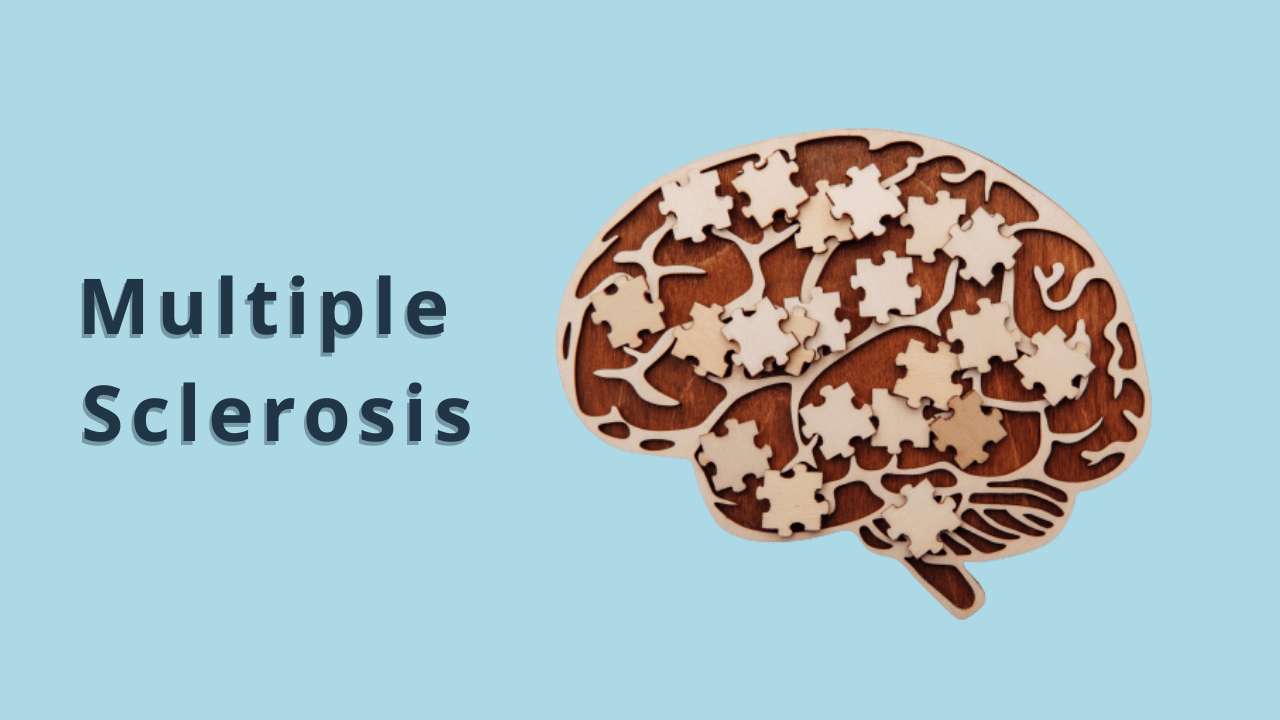Multiple sclerosis (MS) is a potentially disabling disease of the brain and spinal cord (central nervous system). In multiple sclerosis, the immune system attacks the protective sheath (myelin) that covers nerve fibers and causes communication problems between your brain and the rest of your body. Eventually, the disease can cause permanent damage or deterioration of the nerves.
Signs and symptoms of Multiple Sclerosis vary widely and depend on the amount of nerve damage and which nerves are affected. Some people with severe MS may lose the ability to walk independently or at all, while others may experience long periods of remission without any new symptoms.
Treatments can help speed recovery from attacks, modify the course of the disease, and manage symptoms.
Symptoms
- Numbness or weakness in one or more limbs that typically occurs on one side of your body at a time, or your legs and trunk
- Electric-shock sensations that occur with certain neck movements, especially while bending the neck forward
- Lack of coordination or unsteady gait
- Partial or complete loss of vision, usually in one eye at a time, often with pain during eye movement
- Prolonged double vision
- Blurry vision
- Slurred speech
- Fatigue
- Dizziness
- Tingling or pain in parts of your body
- Problems with sexual, bowel, and bladder function
Causes
The cause of multiple sclerosis is unknown. It’s considered an autoimmune disease in which the body’s immune system attacks its own tissues. The immune system malfunction destroys the fatty substance that coats and protects nerve fibers in the brain and spinal cord (myelin).
Risk factors
- Multiple Sclerosis mainly occurs around 20 and 40 years of age.
- Women are more than two to three times as likely as men are to have multiple sclerosis.
- People with a family history of multiple sclerosis are at higher risk of developing the disease.
- A variety of viruses have been linked to multiple sclerosis, including Epstein-Barr, the virus that causes infectious mononucleosis.
- Having low levels of vitamin D is associated with a greater risk of the disease.
- There is a slightly higher risk of developing multiple sclerosis if you have other autoimmune disorders such as thyroid disease, anemia, psoriasis, type 1 diabetes or inflammatory bowel disease.
- Smokers are more likely at risk for multiple sclerosis.
People with multiple sclerosis may develop certain complications including muscle stiffness or spasms, paralysis, typically in legs, problems with bladder, bowel, or sexual function, mental changes such as forgetfulness or mood swings, depression, and visual Disturbances.
Diagnosis
The diagnosis of multiple sclerosis depends on blood tests, spinal tap (lumbar puncture) in which a small sample of cerebrospinal fluid is removed from your spinal canal for laboratory analysis, MRI and others.
Have queries or concern ?
Treatment
In MS, early diagnosis & starting treatment early gives a lot of benifits .A large no of drugs are now available.They have been only injectable drugs in the past , now there are many affordable oral drugs available & injections which have to be given @ monthly or 6 monthly intervals.Severe cases can be benifited by aggressive injectable drugs or Bone marrow transplant.Though we have not reached a stage where we can completely cure the disease , we are getting closer & closer every year.We hopefully foresee a cure in the near future.With drug therapy regularly following up with your neurologist is essential & regular Mri scans may need to be done
Treatment typically focuses on slowing the progression of the disease and managing symptoms of the disease. The treatment methods may also include medications as well as physical therapy. Physical therapy helps in strengthening muscles and makes it easier to perform daily tasks.
Patient of multiple sclerosis lead a normal life. It is very important to continue proper treatment and care under the guidance of your neurologist and all your life goals including study,career,pregnancy ,lactation and normal family life should be encourage and this is all possible to achieve with proper treatment
About Author
Dr. Nasli R Ichaporia
Senior Consultant Neurologist & Director of Neurology Department, Nagar road
Contact: +91 88888 22222
Email – [email protected]
Patient Feedback
Great doctors, Good facilities, caring and helping staff. I recommend this hospital for day care services.
![]()
![]()
Sangram Shinde
All doctors r very good. There treatments is best. Other staff also good. The service of nurses is great...Hospital is always clean.
![]()
![]()
Vaishali Aitawade
All services provide by hospital are nice and on time. Doctors are polite and co-operative with patient.
![]()
![]()
Ankita Jagtap
All services provided by hospital is good. Hygiene maintained well.Even at night good care provided.
![]()
![]()




